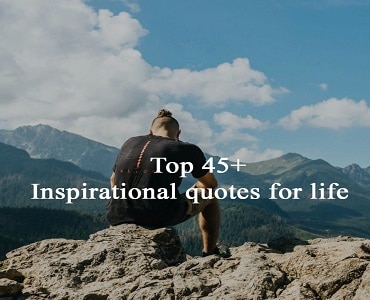Who is Jordan Peterson
Jordan Peterson was born on the 12th June 1962, a Canadian author and psychologist who has garnered both supporters and critics with his outspoken views. Peterson also teaches at the University of Toronto where he is a professor of psychology.
After getting his PhD from McGill University, Peterson researched at Harvard University, as well as teaching there, prior to joining the University of Toronto in 1999, joining the psychology department. The same year, he published the book Maps of Meaning: The Architecture of Belief, forming the core focus of his lectures. His book combined psychology, religion, philosophy and many other areas, as a way to analyse the concept of belief.
His political commentary in 2016 generated controversy, when he criticised an Act of the Canadian Parliament relating to human rights, gaining both support and criticism in equal turn. This led to his subsequent lectures and books becoming increasingly popular around the world. His Youtube videos received millions of views and his second book became a bestseller in multiple countries.
Whatever your views on his comments, his unique combination of information from various fields has generated plenty of thought provoking quotes and concepts, becoming fascinating to many people and causing us to reflect deeply on our own views.
Jordan Peterson Quotes
1. “I don’t think that you have any insight whatsoever into your capacity for good until you have some well-developed insight into your capacity for evil.”
2. “The purpose of life is finding the largest burden that you can bear and bearing it.”
3. “You’re going to pay a price for every bloody thing you do and everything you don’t do. You don’t get to choose to not pay a price. You get to choose which poison you’re going to take. That’s it.”
4. “What is your friend: the things you know, or the things you don’t know. First of all, there’s a lot more things you don’t know. And second, the things you don’t know is the birthplace of all your new knowledge! So if you make the things you don’t know your friend, rather than the things you know, well then you’re always on a quest in a sense. You’re always looking for new information in the off chance that somebody who doesn’t agree with you will tell you something you couldn’t have figured out on your own! It’s a completely different way of looking at the world. It’s the antithesis of opinionated.”
5. “If you don’t say what you think then you kill your unborn self.”
6. “You can only find out what you actually believe (rather than what you think you believe) by watching how you act. You simply don’t know what you believe, before that. You are too complex to understand yourself.”
7. “When you have something to say, silence is a lie.”
8. “If you fulfill your obligations everyday you don’t need to worry about the future.”
9. “Women select men. That makes them nature, because nature is what selects. And you can say “Well it’s only symbolic that women are nature”, it’s like no, it’s not just symbolic. The woman is the gatekeeper to reproductive success. And you can’t get more like nature than that, in fact it’s the very definition of nature.”
10. “It took untold generations to get you where you are. A little gratitude might be in order. If you’re going to insist on bending the world to your way, you better have your reasons.”
11. “Intolerance of others’ views (no matter how ignorant or incoherent they may be) is not simply wrong; in a world where there is no right or wrong, it is worse: it is a sign you are embarrassingly unsophisticated or, possibly, dangerous.”
12. “No tree can grow to Heaven,” adds the ever-terrifying Carl Gustav Jung, psychoanalyst extraordinaire, “unless its roots reach down to Hell.”
13. “So, attend carefully to your posture. Quit drooping and hunching around. Speak your mind. Put your desires forward, as if you had a right to them—at least the same right as others. Walk tall and gaze forthrightly ahead. Dare to be dangerous. Encourage the serotonin to flow plentifully through the neural pathways desperate for its calming influence.”
14. “Don’t underestimate the power of vision and direction. These are irresistible forces, able to transform what might appear to be unconquerable obstacles into traversable pathways and expanding opportunities. Strengthen the individual. Start with yourself. Take care with yourself. Define who you are. Refine your personality. Choose your destination and articulate your Being. As the great nineteenth-century German philosopher Friedrich Nietzsche so brilliantly noted, “He whose life has a why can bear almost any how.”
15. “And if you think tough men are dangerous, wait until you see what weak men are capable of.”
16. “RULE 4 COMPARE YOURSELF TO WHO YOU WERE YESTERDAY, NOT TO WHO SOMEONE ELSE IS TODAY”
17. “Ideologies are substitutes for true knowledge, and ideologues are always dangerous when they come to power, because a simple-minded I-know-it-all approach is no match for the complexity of existence.”
18. “In the West, we have been withdrawing from our tradition-, religion- and even nation-centred cultures, partly to decrease the danger of group conflict. But we are increasingly falling prey to the desperation of meaninglessness, and that is no improvement at all.”
19. “You cannot be protected from the things that frighten you and hurt you, but if you identify with the part of your being that is responsible for transformation, then you aare always the equal, or more than the equal of the things that frighten you.”
20. “To suffer terribly and to know yourself as the cause: that is Hell.”
21. “We deserve some respect. You deserve some respect. You are important to other people, as much as to yourself. You have some vital role to play in the unfolding destiny of the world. You are, therefore, morally obliged to take care of yourself. You should take care of, help and be good to yourself the same way you would take care of, help and be good to someone you loved and valued. You may therefore have to conduct yourself habitually in a manner that allows you some respect for your own Being—and fair enough. But every person is deeply flawed. Everyone falls short of the glory of God. If that stark fact meant, however, that we had no responsibility to care, for ourselves as much as others, everyone would be brutally punished all the time. That would not be good. That would make the shortcomings of the world, which can make everyone who thinks honestly question the very propriety of the world, worse in every way. That simply cannot be the proper path forward.”
22. “You must determine where you are going in your life, because you cannot get there unless you move in that direction. Random wandering will not move you forward. It will instead disappoint and frustrate you and make you anxious and unhappy and hard to get along with (and then resentful, and then vengeful, and then worse).”
“Perhaps you are overvaluing what you don’t have and undervaluing what you do.”
23. “If you have a comprehensive explanation for everything then it decreases uncertainty and anxiety and reduces your cognitive load. And if you can use that simplifying algorithm to put yourself on the side of moral virtue then you’re constantly a good person with a minimum of effort.”
24. “Of course, my socialist colleagues and I weren’t out to hurt anyone – quite the reverse. We were out to improve things – but we were going to start with other people. I came to see the temptation in this logic, the obvious flaw, the danger – but could also see that it did not exclusively characterize socialism. Anyone who was out to change the world by changing others was to be regarded with suspicion. The temptations of such a position were too great to be resisted.”
25. “Sometimes, when people have a low opinion of their own worth—or, perhaps, when they refuse responsibility for their lives—they choose a new acquaintance, of precisely the type who proved troublesome in the past. Such people don’t believe that they deserve any better—so they don’t go looking for it. Or, perhaps, they don’t want the trouble of better. Freud called this a “repetition compulsion.” He thought of it as an unconscious drive to repeat the horrors of the past—sometimes, perhaps, to formulate those horrors more precisely, sometimes to attempt more active mastery and sometimes, perhaps, because no alternatives beckon. People create their worlds with the tools they have directly at hand. Faulty tools produce faulty results. Repeated use of the same faulty tools produces the same faulty results. It is in this manner that those who fail to learn from the past doom themselves to repeat it. It’s partly fate. It’s partly inability. It’s partly … unwillingness to learn? Refusal to learn? Motivated refusal to learn?”
26. “Compare yourself to who you were yesterday, not to who someone else is today.”
27. “The purpose of life, as far as I can tell… is to find a mode of being that’s so meaningful that the fact that life is suffering is no longer relevant.”
28. “You don’t get to choose not to pay a price, you only get to choose which price you pay”
29. “Order is not enough. You can’t just be stable, and secure, and unchanging, because there are still vital and important new things to be learned. Nonetheless, chaos can be too much. You can’t long tolerate being swamped and overwhelmed beyond your capacity to cope while you are learning what you still need to know. Thus, you need to place one foot in what you have mastered and understood and the other in what you are currently exploring and mastering. Then you have positioned yourself where the terror of existence is under control and you are secure, but where you are also alert and engaged. That is where there is something new to master and some way that you can be improved. That is where meaning is to be found.”
30. “So, listen, to yourself and to those with whom you are speaking. Your wisdom then consists not of the knowledge you already have, but the continual search for knowledge, which is the highest form of wisdom.”
31. “If you are not willing to be a fool, you can’t become a master.”
32. “There are some games you don’t get to play unless you are all in.”
33. “Every bit of learning is a little death. Every bit of new information challenges a previous conception, forcing it to dissolve into chaos before it can be reborn as something better. Sometimes such deaths virtually destroy us.”
34. “Always place your becoming above your current being.”
35. “Rejection of the unknown is tantamount to “identification with the devil,” the mythological counterpart and eternal adversary of the world-creating exploratory hero. Such rejection and identification is a consequence of Luciferian pride, which states: all that I know is all that is necessary to know. This pride is totalitarian assumption of omniscience – is adoption of “God’s place” by “reason” – is something that inevitably generates a state of personal and social being indistinguishable from hell. This hell develops because creative exploration – impossible, without (humble) acknowledgment of the unknown – constitutes the process that constructs and maintains the protective adaptive structure that gives life much of its acceptable meaning”
36. “The better ambitions have to do with the development of character and ability, rather than status and power. Status you can lose. You carry character with you wherever you go, and it allows you to prevail against adversity.”
37. “The successful among us delay gratification. The successful among us bargain with the future.”
38. “Don’t use language instrumentally”
39. “The things that pose the greatest threats to your survival are the most real things.”
40. “Consciousness is a mystery that faces the mystery of potential and transforms it into actuality. We do that with every choice we make. Our choices determine the destiny of the world. By making a choice, you alter the structure of reality.”
41. “Nietzsche said that a man’s worth was determined by how much truth he could tolerate”
42. “We believe that in reducing the scope and importance of our errors, we are properly humble; in truth, we are merely unwilling to bear the weight of our true responsibility.”
43. “We require routine and tradition. That’s order. Order can become excessive, and that’s not good, but chaos can swamp us, so we drown— and that is also not good. We need to stay on the straight and narrow path.”
44. “In order to be able to think, you have to risk being offensive.”
45. “People organize their brains with conversation. If they don’t have anyone to tell their story to, they lose their minds. Like hoarders, they cannot unclutter themselves.”
46. “If your life is not what it could be, try telling the truth. If you cling desperately to an ideology, or wallow in nihilism, try telling the truth. If you feel weak and rejected, and desperate, and confused, try telling the truth. In Paradise, everyone speaks the truth. That is what makes it Paradise. Tell the truth. Or, at least, don’t lie.”
47. “when once-naïve people recognize in themselves the seeds of evil and monstrosity, and see themselves as dangerous (at least potentially) their fear decreases. They develop more self-respect. Then, perhaps, they begin to resist oppression. They see that they have the ability to withstand, because they are terrible too. They see they can and must stand up, because they begin to understand how genuinely monstrous they will become, otherwise, feeding on their resentment, transforming it into the most destructive of wishes. To say it again: There is very little difference between the capacity for mayhem and destruction, integrated, and strength of character. This is one of the most difficult lessons of life.”
48. “We must each adopt as much responsibility as possible for individual life, society and the world. We must each tell the truth and repair what is in disrepair and break down and recreate what is old and outdated. It is in this manner that we can and must reduce the suffering that poisons the world. It’s asking a lot. It’s asking for everything.”
49. “if you cannot understand why someone did something, look at the consequences—and infer the motivation.”
50. “Stop saying those things that make you weak and ashamed. Say only those things that make you strong. Do only those things that you could speak of with honour.”
51. “Don’t ever underestimate the destructive power of sins of omission.”
52. “It is my firm belief that the best way to fix the world—a handyman’s dream, if ever there was one—is to fix yourself,”
53. “Human female choosiness is also why we are very different from the common ancestor we shared with our chimpanzee cousins, while the latter are very much the same. Women’s proclivity to say no, more than any other force, has shaped our evolution into the creative, industrious, upright, large-brained (competitive, aggressive, domineering) creatures that we are.42 It is Nature as Woman who says, “Well, bucko, you’re good enough for a friend, but my experience of you so far has not indicated the suitability of your genetic material for continued propagation.”
54. “Sometimes it seems the only people willing to give advice in a relativistic society are those with the least to offer.”
55. “You are by no means only what you already know. You are also all that which you could know, if you only would. Thus, you should never sacrifice what you could be for what you are. You should never give up the better that resides within for the security you already have—and certainly not when you have already caught a glimpse, an undeniable glimpse, of something beyond.”





